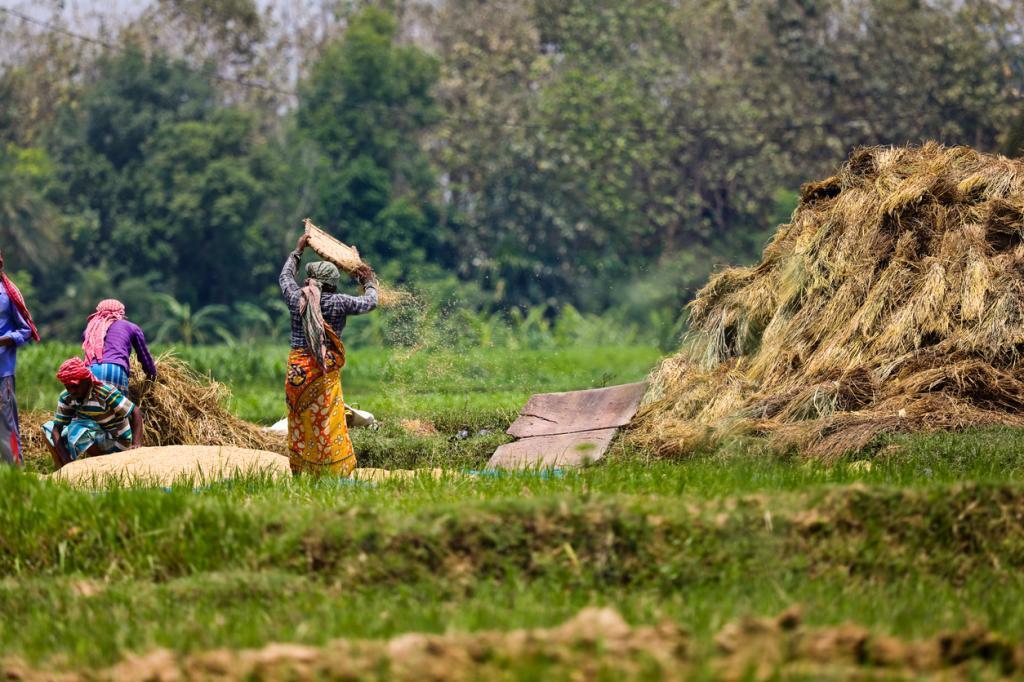

The existing ecosystem is not in favour of small and marginal farmers



Market access is critical for the success of India’s momentum towards organic and natural farming, said Amit Khurana, head of Delhi-based think tank Centre for Science and Environment’s (CSE) sustainable food systems programme.
Khurana was speaking at the e-release of CSE’s new report titled Market Access in India for Organic and Natural Produce: Case Studies. The report, released on June 21, 2023, highlighted how various stakeholders procure, process and sell organic and natural produce while trying to ensure remunerative prices to farmers. The document also identified some of the challenges faced by them.
“Our policymakers have been talking about growing food through organic and natural farming. But unless farmers get assured access to market to sell their produce at a remunerative price, the challenge of transition will remain difficult to overcome,” said Khurana.
Also read: CSE’s organic experiment: Challenge starts with procuring right seeds
Lack of market access should not be allowed to become a barrier in India’s journey towards non-chemical farming practices, which are good for the farmer, nature and human health,” pointed CSE researchers in the report.
Besides Khurana, Dinesh Balam, state coordinator of Odisha Millet Mission; Akash Badave, chief executive officer of Bhoomgaadi Organic Farmers Produce Company; GV Ramanjaneyulu, expert director, Sahaja Aharam Producer Company; Manoj Gupta, principal scientist, State Project Implementing Unit, Prakritik Kheti Khushhal Kisan Yojna etc. spoke at the webinar.
Through carefully selecting six case studies, CSE identified three categories of stakeholders — Farmer Producer Organisations (FPO) and the federation of FPOs, retail food corporations and state government programmes — and some of the challenges faced by them.
The case studies included Bhoomgaadi Farmers Producer Company Limited, Dantewada, Chhattisgarh; Sahaja Aharam Producer Company Limited, Hyderabad, Telangana; Sresta Bioproducts Limited (24 Mantra), Hyderabad; BigBasket; Odisha Millet Mission; and Prakritik Kheti Khushhal Kisan Yojana of Himachal Pradesh.
“We need to work with consumers for behaviour change towards organic produce. As in the case of millet, wherein people are getting more aware of it, governments should make more efforts,” said Badave while highlighting the challenges due to the remoteness of the location where Bhoomgaadi operates.
Badave said:
We need coherence in the different certification systems like Participatory Guarantee System (PGS) and third-party National Programme for Organic Production (NPOP) certification. We are facing challenges in the acceptability of PGS certification system. FPOs also need government support for working capital, dedicated infrastructure and support for capacity building.
The existing ecosystem is not in favour of small and marginal farmers, said GV Ramanjaneyulu, expert director of Sahaja Aharam Producer Company. Unless ecosystem supports, expecting FPOs to manage all the business by themselves is too much at this point, said Ramanjaneyulu, while commenting on the FPOs’ readiness and importance in upscaling the organic and natural movement.
“We need to expand value addition and move towards shorter supply chains for better price realisation by farmers. FPOs can help in both,” added Ramanjaneyulu on being asked how farmers can realise better prices.
Organic farmers don’t get all the benefits conventional farmers get in terms of subsidies, pointed out Rajashekar Reddy Seelam, managing director of Sresta Natural Bioproducts Pvt Ltd.
“The key to stabilising prices is unlocking consumer demand. If there is demand, farmers are ready to produce,” added Seelam.
If more FPOs come, production will increase, and more produce will reach more consumers, added Ramanjaneyulu.
We are a voice to you; you have been a support to us. Together we build journalism that is independent, credible and fearless. You can further help us by making a donation. This will mean a lot for our ability to bring you news, perspectives and analysis from the ground so that we can make change together.

Comments are moderated and will be published only after the site moderator’s approval. Please use a genuine email ID and provide your name. Selected comments may also be used in the ‘Letters’ section of the Down To Earth print edition.